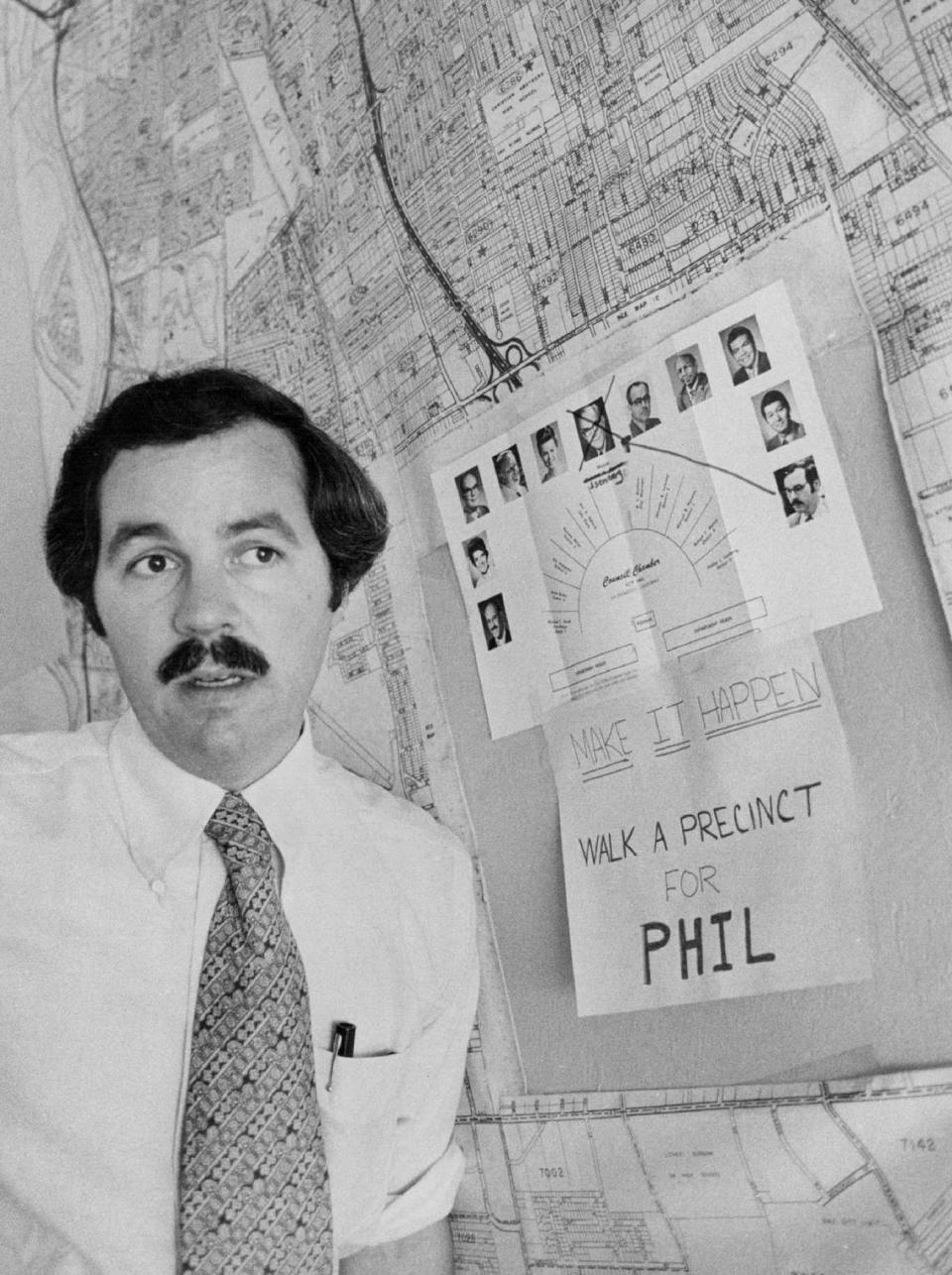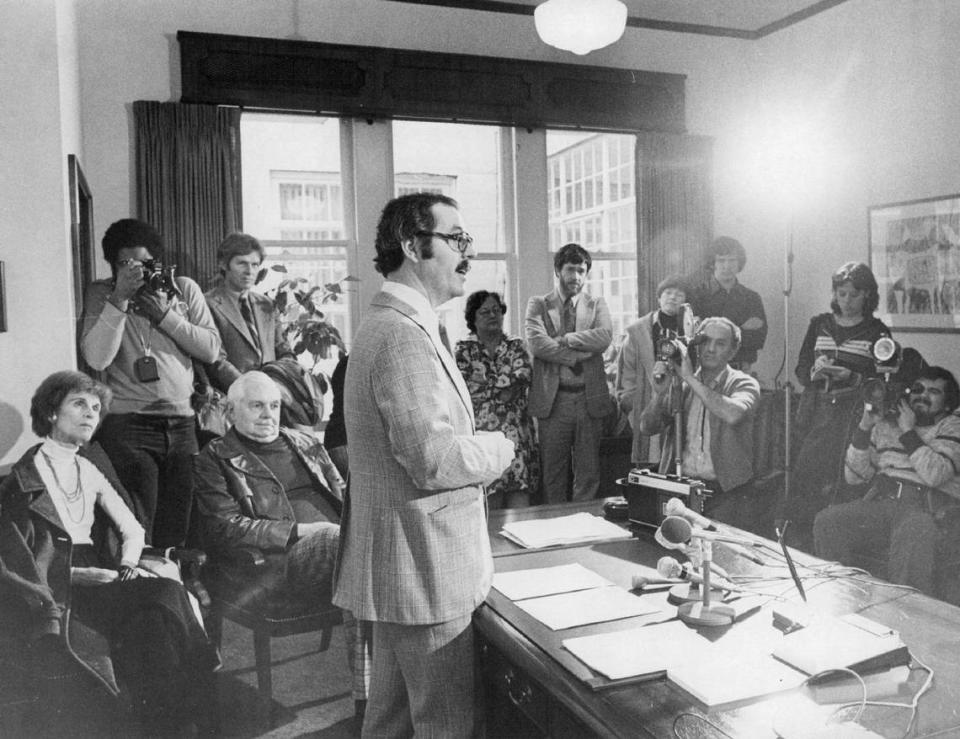‘A giant in this community.’ Former Sacramento mayor, assemblyman Phil Isenberg dies
- Oops!Something went wrong.Please try again later.
Phil Isenberg, who served as a Sacramento city councilman, mayor, state assemblyman and mentor to a generation of local leaders, died Thursday after a brief illness. He was 84.
Over his six decades of public service to the capital region and California, Isenberg was a passionate promoter of the arts, a master political collaborator and a defender of the environment. He first ascended to elected office in 1971, when he was elected to the Sacramento City Council. He would go on to serve as mayor from 1975 to 1982 and was first elected to the state Assembly in 1982, representing Sacramento in the state Capitol until 1996.
His public advocacy continued for years after that, including long stints on the Delta Stewardship Council and as a professor of public policy at the McGeorge School of Law; the University of California, Berkeley; and California State University, Sacramento. He also served on the boards of directors of several local organizations including WEAVE, Women Escaping a Violent Environment, and the Verge Center for the Arts.
Isenberg remained a savvy political observer into his later years, eager to share his thoughts on major city and state issues with journalists, friends and former colleagues. Former Sacramento Mayor Heather Fargo, among a long list of notable local leaders who considered Isenberg a role model, said she will miss running into Isenberg and his wife, Marilyn Araki Isenberg, at the farmers market.
“A smile and his greeting of, ‘Hey kid,’ would follow,” Fargo said, adding Isenberg was “so smart and personable and committed to making Sacramento a better place.”
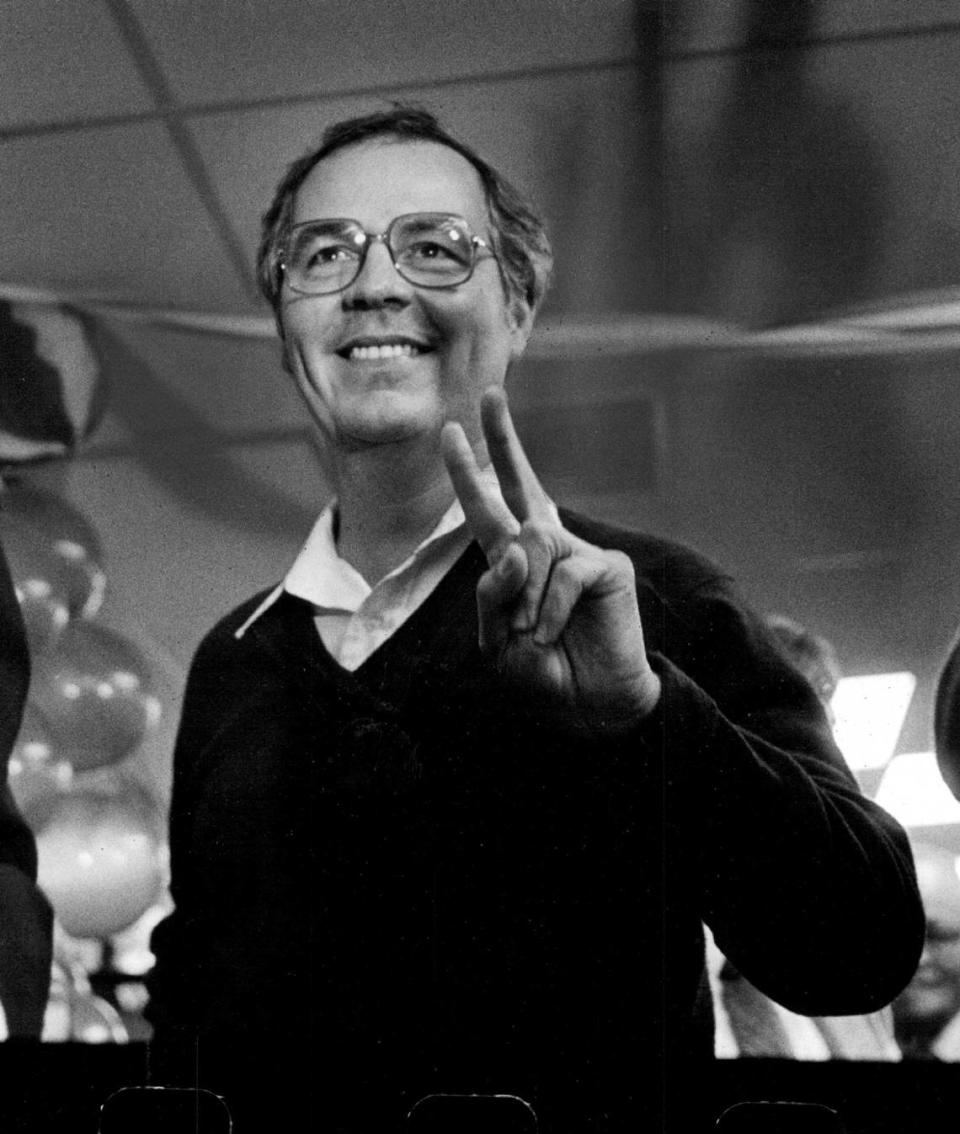
Isenberg’s defense of the region’s rivers was rooted in his love of fishing and birding. He named the Sandhill crane the official bird of his Assembly district and secured funding for a preserve for the bird near Lodi. He served as chairman of the Assembly Water Parks and Wildlife Committee and is credited with helping to save Mono Lake by organizing legislators from both political parties to fund alternate water sources for the Los Angeles Department of Water and Power, reducing diversions from the iconic lake in the eastern Sierra.
“Most of what I participated in as a public official — that was worth doing — I did at his urging or inspiration,” former Assemblyman and state Sen. Patrick Johnston said. “Phil led on health care reform, saving Mono Lake, the Delta Protection Act, the Phil and Marilyn Isenberg Sand Hill Crane Reserve and so much more.”
Born in Gary, Indiana, in 1939, Isenberg graduated from El Camino High School in 1956 and Sacramento State in 1961. He earned his law degree from the UC Berkeley’s Boalt Hall in 1967 and returned to Sacramento two years later to start a law office.
His political influences included Willie Brown, the former Assembly speaker and San Francisco Mayor for whom Isenberg worked after graduating from Boalt Hall. Isenberg eventually became a mentor to many others, including Sacramento Mayor Darrell Steinberg.
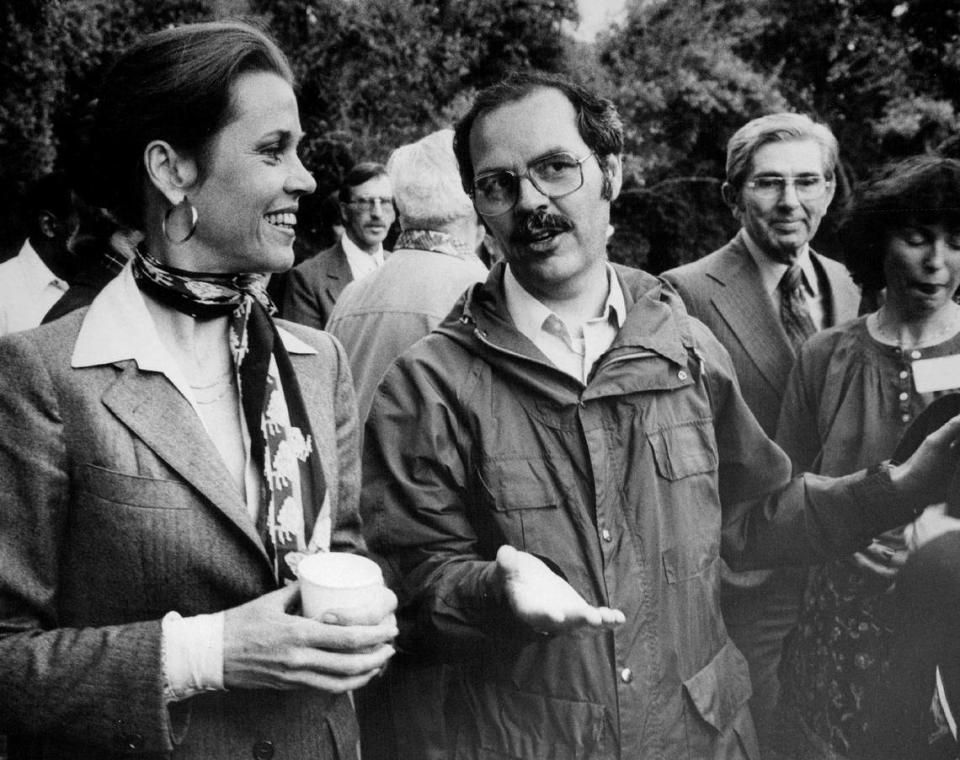
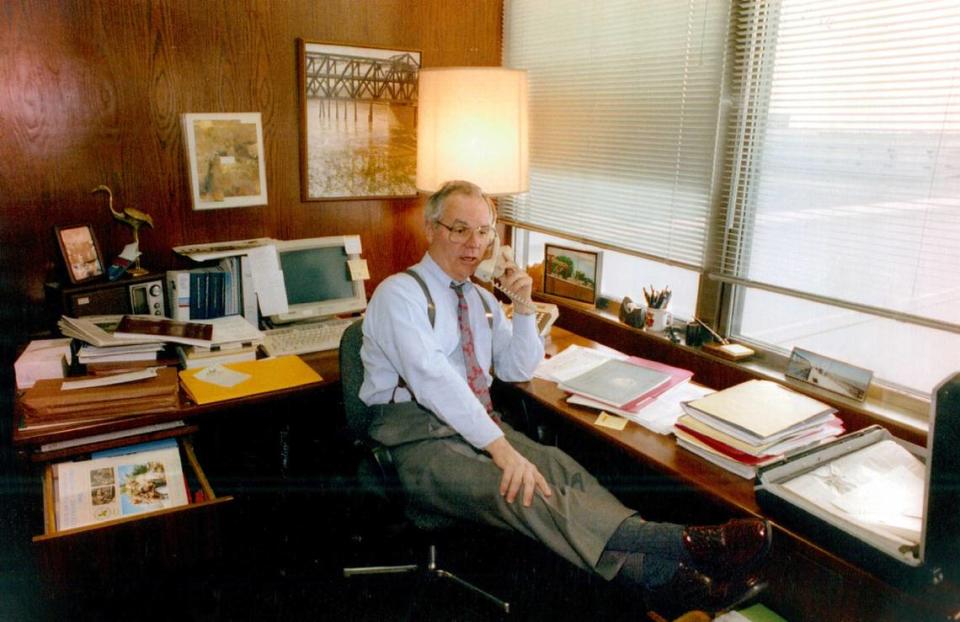
Isenberg gave Steinberg what the current Sacramento mayor called “the most important political advice I’ve ever received.”
“When you take elected office, focus on one or two things that really matter, that few others are taking on and find your north star and make that your drive for public service,” Steinberg said Isenberg told him. “I now give that same advice to new legislators every single year.”
Among Isenberg’s priorities was his promotion of the arts. As mayor, he launched the Sacramento Office of Arts and Culture. He and his wife were well-known art collectors and supporters of the local music scene.
“Phil and Marilyn shared our goal of establishing a larger contemporary art presence in Sacramento, and without their credibility and enthusiasm, I’m not sure that any of this would have happened,” said Liv Moe, the executive director of the Verge Center for the Arts. “They were involved in everything we did since the beginning, and the weirder a particular project was, the happier they were about it. Phil didn’t have an ego about his arts and culture legacy, and that is what enabled him to believe in people so unselfishly.”
And in the cutthroat world of politics, Isenberg maintained his kindness.
“He was the straightest shooter you would ever meet, he told you exactly what he thought of what you did or what you didn’t do, but always with a kindness, always with a great heart,” Steinberg said. “This is somebody who needs to be remembered as a model for doing it the right way. He was a giant in this community.”
